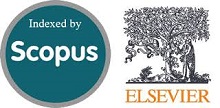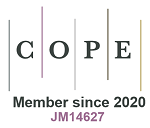Big Data, Knowledge Mapping for Sustainable Development: A Water Quality Index Case Study
Abstract
Keywords
References
Brown, Robert M., Nina I. McClelland, Rolf A. Deininger, and Ronald G. Tozer. "A Water Quality Index- Do We Dare." (1970).
Chen, R., & Li, X., Application of the main factor analysis to water quality assessment of Dongjiang Lake. Journal of Hunan University of Arts and Science (Science and Technology), Vol. 27 (No. 4, Dec. 2015), 64–68.
Effendi, Hefni, Romanto, and Yusli Wardiatno. “Water Quality Status of Ciambulawung River, Banten Province, Based on Pollution Index and NSF-WQI.” Procedia Environmental Sciences 24 (2015): 228–237. doi:10.1016/j.proenv.2015.03.030.
Ekere, Nwachukwu R., Vitus E. Agbazue, Benedict U. Ngang, and Janefrances N. Ihedioha. “Hydrochemistry and Water Quality Index of Groundwater Resources in Enugu North District, Enugu, Nigeria.” Environmental Monitoring and Assessment 191, no. 3 (February 9, 2019). doi:10.1007/s10661-019-7271-0.
Hameed, Mohammed, Saadi Shartooh Sharqi, Zaher Mundher Yaseen, Haitham Abdulmohsin Afan, Aini Hussain, and Ahmed Elshafie. “Application of Artificial Intelligence (AI) Techniques in Water Quality Index Prediction: a Case Study in Tropical Region, Malaysia.” Neural Computing and Applications 28, no. S1 (June 8, 2016): 893–905. doi:10.1007/s00521-016-2404-7.
Horton, Robert K. "An index number system for rating water quality." Journal of Water Pollution Control Federation 37, no. 3 (1965): 300-306.
Hurley, Tim, Rehan Sadiq, and Asit Mazumder. “Adaptation and Evaluation of the Canadian Council of Ministers of the Environment Water Quality Index (CCME WQI) for Use as an Effective Tool to Characterize Drinking Source Water Quality.” Water Research 46, no. 11 (July 2012): 3544–3552. doi:10.1016/j.watres.2012.03.061.
Khan, Amir Ali, Annette Tobin, Renée Paterson, Haseen Khan, and Richard Warren. “Application of CCME Procedures for Deriving Site-Specific Water Quality Guidelines for the CCME Water Quality Index.” Water Quality Research Journal 40, no. 4 (November 2005): 448–456. doi:10.2166/wqrj.2005.047.
Krenkel, Peter. Water quality management. Elsevier, 2012.
Lumb, Ashok, T. C. Sharma, and Jean-François Bibeault. “A Review of Genesis and Evolution of Water Quality Index (WQI) and Some Future Directions.” Water Quality, Exposure and Health 3, no. 1 (March 25, 2011): 11–24. doi:10.1007/s12403-011-0040-0.
Sakizadeh, Mohamad. “Artificial Intelligence for the Prediction of Water Quality Index in Groundwater Systems.” Modeling Earth Systems and Environment 2, no. 1 (December 22, 2015). doi:10.1007/s40808-015-0063-9.
Zhang, L. "Water Quality Assessment and Pollution Characteristics Analysis for Lower Reaches in Liao River". Income Q. Zeng (eds), 2016 2nd International Conference on Environmental Pollution and Public Health, Vol. 8, (April, 2016): 131–138.
Zhang, Lei. “Different Methods for the Evaluation of Surface Water Quality: The Case of the Liao River, Liaoning Province, China.” International Review for Spatial Planning and Sustainable Development 5, no. 4 (2017): 4–18. doi:10.14246/irspsd.5.4_4.
DOI: 10.28991/esj-2019-01187
Refbacks
- There are currently no refbacks.
Copyright (c) 2019 LEI ZHANG






